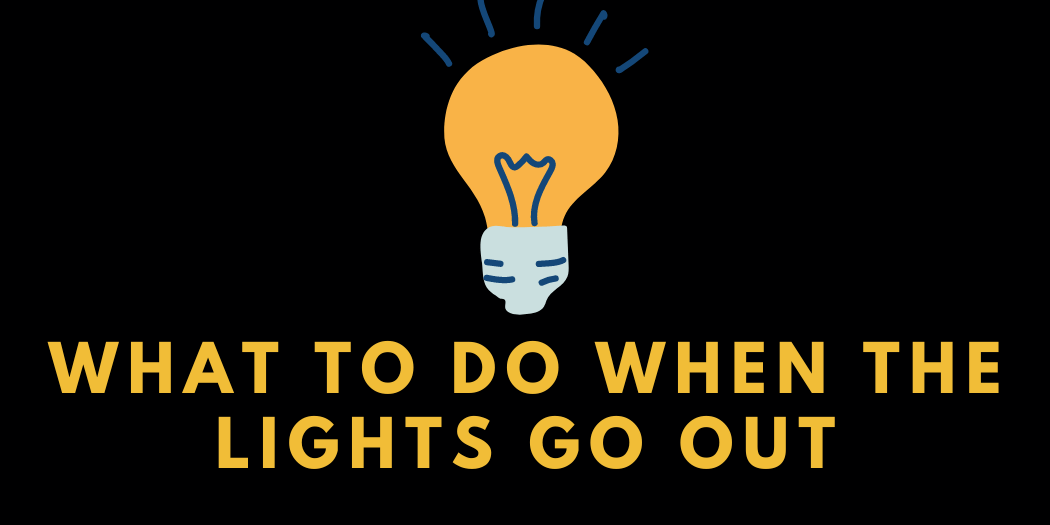Electrical Emergencies: What to Do When the Lights Go Out
Do you ever wonder what to do when the lights go out?
Experiencing a sudden power outage or electrical emergency can be a disconcerting situation.
Whether it’s a localized blackout, a blown fuse, or a sparking outlet, knowing how to respond calmly and effectively is crucial for your safety and the well-being of your home.
In this blog post, we will provide you with essential guidance on what to do when the lights go out unexpectedly or when faced with other electrical emergencies.
From basic troubleshooting steps to precautionary measures, we’ll equip you with the knowledge and confidence to handle electrical emergencies with ease and minimize potential risks.
What to Do When the Lights Go Out
Stay Calm and Assess the Situation
During an electrical emergency, it’s essential to remain calm and assess the situation before taking any action.
Determine whether the power outage is isolated to your home or if it’s a broader issue affecting your neighborhood.
Check if your neighbors’ homes have power to rule out a localized problem. If it’s a widespread blackout, contact your electricity provider to report the outage and inquire about the estimated restoration time.
Basic Troubleshooting Steps
Before seeking professional help, try these basic troubleshooting steps to determine the cause of the electrical emergency:
Check the Circuit Breaker: Inspect your electrical panel to see if any circuit breakers have tripped. If you find a tripped breaker, switch it off and then back on to reset it. If the breaker trips again immediately, there may be a more significant issue that requires professional attention.
Test Nearby Outlets: Test a few outlets in different areas of your home to see if the power loss is limited to a specific area. If multiple outlets are not working, it could indicate a broader electrical issue.
Replace Blown Fuses: If your home uses fuses rather than circuit breakers, locate the blown fuse and replace it with a new one of the same amperage.
Ensure Safety First
Prioritizing safety is paramount during an electrical emergency. Take the following precautions to protect yourself and your home:
Avoid Water Contact: Never touch electrical outlets, switches, or appliances with wet hands or when standing on a wet surface.
Unplug Appliances: During a power outage or electrical emergency, unplug sensitive electronics, appliances, and devices to prevent damage from power surges when the electricity is restored.
Use Flashlights: Use battery-powered flashlights or emergency lighting instead of candles to avoid the risk of fire.
Turn Off Appliances: Turn off major appliances like ovens, stoves, and air conditioners to prevent damage when power is restored.
Stay Away from Downed Power Lines: If you notice downed power lines, stay far away from them and immediately contact your electricity provider or emergency services.
Keep Refrigerator and Freezer Closed: If the power outage is expected to last for an extended period, minimize opening the refrigerator and freezer doors to preserve food and maintain a safe temperature.
Seek Professional Assistance
If basic troubleshooting steps do not resolve the electrical emergency, it’s time to seek professional help. Contact a licensed electrician to assess and address the issue safely and efficiently. Professional assistance is recommended for the following situations:
Persistent Power Outage: If the power outage extends beyond the estimated restoration time or is isolated to your home while neighbors have power, it indicates a potential electrical problem that requires expert attention.
Sparks or Smoke: If you notice sparks, smoke, or burning smells coming from outlets, switches, or electrical appliances, immediately switch off the power supply at the circuit breaker and contact a professional electrician. Do not attempt to investigate or fix the issue yourself.
Electrical Shock: If you experience an electrical shock when touching an appliance or electrical component, seek medical attention immediately, and contact an electrician to investigate the cause.
Flickering Lights: If your lights flicker frequently or dim unexpectedly, it could indicate an underlying electrical issue. A licensed electrician can diagnose the problem and provide appropriate solutions.
Final Thoughts on What to Do When the Lights Go Out
Electrical emergencies can occur unexpectedly, but by staying calm, taking basic troubleshooting steps, and prioritizing safety, you can effectively respond to these situations.
Remember to always prioritize your well-being and seek professional assistance when necessary. By following the guidelines outlined in this blog post, you will be better equipped to handle electrical emergencies and ensure the safety of yourself, your loved ones, and your home.







